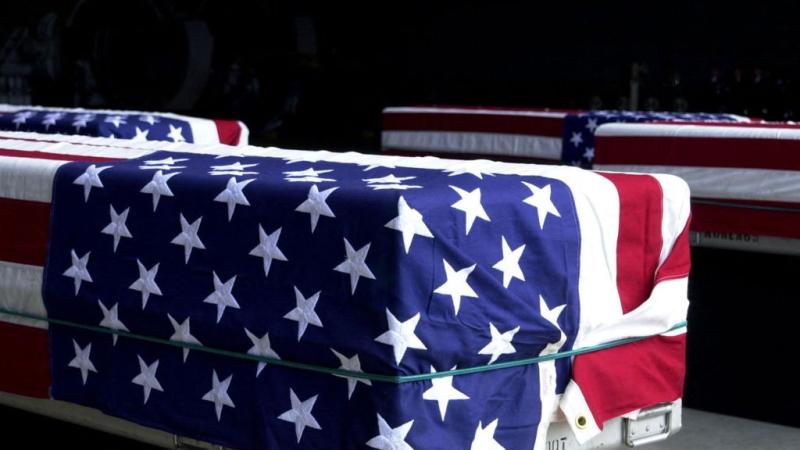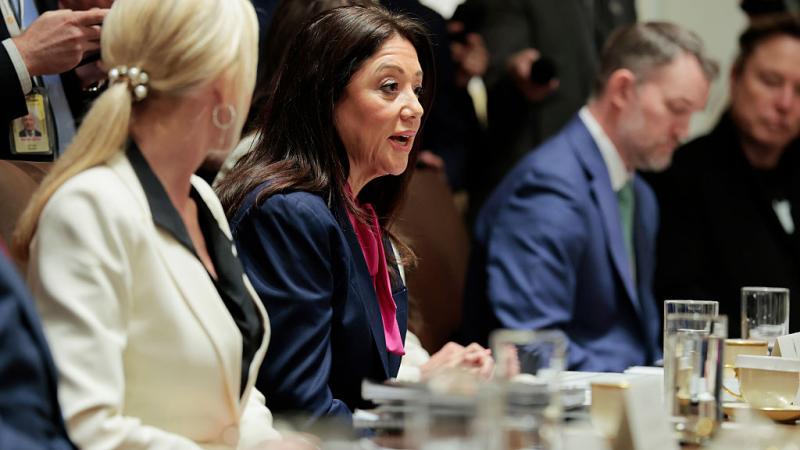As mask use rises dramatically, evidence for their effectiveness is 'sparse and contested'
Masks are actually 'not better than nothing,' one expert says; another argues for the 'precautionary principle'
Long a rare phenomenon in the United States even amid the worst flu seasons, mask-wearing has become ubiquitous throughout the country in recent weeks as the coronavirus pandemic has persisted.
A CBS News poll earlier this month found that nearly 70% of Americans wear a mask at least "most of the time" when they go out, with 44% wearing one all of the time.
Those high numbers are due in no small part to the recommendations of the Centers for Disease Control and Prevention, which late last month began recommending that every American wear a face covering when away from home. That suggestion was a sharp reversal from earlier CDC guidance which said that only symptomatic individuals, as well as those caring for sick people, should wear masks.
Prior to the about-face, the no-mask position reflected the consensus view of top U.S. public health authorities.
On Feb. 29, U.S. Surgeon General Jerome Adams said in a tweet: “Seriously people—STOP BUYING MASKS! They are NOT effective” in preventing the spread of coronavirus.
Dr. Anthony Fauci, one of the physicians in charge of the U.S.'s response to the pandemic, said in March that "there’s no reason to be walking around with a mask."
So what changed in between then and now? Has compelling new evidence emerged that suggests widespread mask usage is effective at slowing the spread of the coronavirus? Has such evidence ever existed? In the view of some dissenting experts, the answers are, respectively: Not much, no, and no. Yet, for now at least, a broad consensus of expert opinion continues to insist it is necessary to wear them for the duration of the pandemic, if for no other reason than to be careful.
'Why we expect it to work in pandemic, I don’t get'
Lisa Brosseau and Margaret Sietsema are both experts on respiratory protection and infectious diseases who have taught at the University of Chicago (Brosseau is retired). On Apr. 1, they published a paper for the Center for Infectious Disease Research and Policy in which they stated bluntly: "We do not recommend requiring the general public who do not have symptoms of COVID-19-like illness to routinely wear cloth or surgical masks."
They cited a lack of evidence for the effectiveness of such masks in slowing the spread of the disease, as well as risks that those wearing them may "relax other distancing efforts because they have a sense of protection."
Brosseau told Just the News this week her opinions had not changed in the 50 days since she and Sietsema published the article.
"What we know about this disease is that there seems to be a lot of asymptomatic transmission going on," she said. "That’s coming from talking and breathing. Those are mostly smaller particles."
"Any filter that’s made out of woven material not designed to be a filter is not going to collect particles in an efficient way. It will collect larger ones with some efficiency but not smaller ones."
Brosseau said that infected individuals generate around 900 particles of the disease a minute when talking or breathing. Current theories, she explained, estimate that an individual needs about 1,000 particles to become infected by the virus.
"Cloth masks stop about 50 percent of particles," she said. "If it takes you two or three minutes to get an infectious dose, the mask may move the infection time up a little bit longer." The slight extension in the time it takes to become infected, she argued, would be insufficient to protect those in customer-facing service work like "retail, or someone driving a bus."
She argued that surgical masks are not much better. They were "originally designed to prevent the emission of large droplets for surgeons in surgical setting, to prevent bacterial infections during surgery," she said.
"For some reason at some point, surgical masks started to be worn as protective equipment for healthcare workers to protect against droplets being sprayed into the face," Brosseau said. "That was never the purpose of them. It was to prevent large droplets being spewed onto wounds."
Brosseau estimates that such masks have about an 80% filtration efficiency. "They don’t prevent you from inhaling," she said. "They have ear loops. They fold. They have huge amounts of gaps. Particles take the path of least resistance. They go right around edges."
As far as N95 masks go, she said: "The problem with any kind of respirator is that it needs to be fit-tested. They’re much better filters than surgical and cloth masks. But if you didn’t fit-test it, you may not get anything better than a cloth or surgical mask."
Brosseau was asked if masks were better than nothing even with their inefficiencies. "My problem is the masks are not better than nothing. They encourage people to get close to others and spend more time in close settings. It’s egregious that we’re requiring them for workers. We would never, ever suggest a cloth mask in an industrial setting for protection of dust. Why we expect it to work in pandemic, I don’t get."
'You just have to apply the precautionary principle'
Brosseau appears to be in the minority among medical officials, at least in her outspokenness. Most health authorities these days appear to have strongly endorsed near-constant mask usage while away from home.
Edwin Michael, an epidemiology and disease transmission professor at the University of Notre Dame, for example, believes masks are a necessary part of pandemic mitigation. He told Just the News that, though evidence for the effectiveness of cloth and surgical masks is lacking, people should still wear them.
"There are very few control trials regarding masks," he said. "The evidence is mixed, because studies look at the three different types of masks [N95, cloth and surgical]. There are about five peer-reviewed, systematic reviews."
He stressed, however, that "absence of evidence is not evidence of absence," meaning one shouldn't necessarily conclude that mask-wearing is useless just because there's as-of-yet no evidence that it helps.
The professor shared with Just the News a paper authored by an international team of researchers and published last month. In it, the scientists admit that "the evidence base on the efficacy and acceptability of the different types of face mask in preventing respiratory infections during epidemics is sparse and contested." Still, they argue that individuals should follow "the precautionary principle" in wearing them, given that "we have little to lose and potentially something to gain from this measure."
Michael also cited the example of Austria, which mandated face masks in public from April 6 onward and which he said saw a consequent massive drop in coronavirus infections as a result.
Austria did indeed see a drop in coronavirus infections after their mask mandate. Less clear is whether masks had anything to do with it. Coronavirus infections were already dropping sharply by the time the mask mandate went into place. Multiple data websites put Austria's coronavirus peak at Mar. 26-27, after which cases began dropping sharply. The pandemic, in other words, was already on a steep decline in Austria about 10 days before a mask mandate went into effect there.
Joseph Allen, an assistant professor of exposure assessment science at Harvard's T.H. Chan School of Public Health, also believes strongly in mask-wearing. "You shouldn’t leave the home without a mask and some hand sanitizer," he said on Tuesday during a conference call with media. "Universal mask-wearing should happen. It’s supported by the scientific evidence."
Allen pointed reporters to an article he wrote for the Washington Post in early April in which he strongly argued in favor of mask usage as well as numerous other mitigation measures such as physical distancing. Allen's article did not cite any studies or evidence to bolster the claim that masks will actually help mitigate the spread of coronavirus, but a few other scientific investigations offer some suggestions.
A paper published by a team of researchers in South Korea last month had participants cough on to petri dishes while wearing no mask, cotton masks, and surgical masks. They concluded that "neither surgical nor cotton masks effectively filtered SARS–CoV-2 during coughs by infected patients," though they acknowledged that they did not know "whether masks shorten the travel distance of droplets during coughing" and that further study was needed to determine mask efficacy concerning asymptomatic patients.
In a more promising study, researchers in Hong Kong this month announced findings that surgical masks were up to 75% effective at filtering coronavirus particles. The researchers used hamsters as test subjects, placing one group infected with COVID-19 next to another, healthy group. Surgical masks were stretched across openings of the cages, with a fan blowing air from one cage to the next.
The experiment "shows very clearly that if infected hamsters or humans — especially asymptomatic or symptomatic ones — put on masks, they actually protect other people," one researcher concluded. The study has not yet been published in a medical journal.
Brosseau cites a 1920 study authored by W.H Kellogg, the then-executive officer of the California State Board of Health, who was examining the effect mask mandates had on the transmission of the Spanish flu during that pandemic.
Though authored a century ago under markedly different conditions, Kellogg came to conclusions similar to those of Brosseau, writing that "masks have not been demonstrated to have a degree of efficiency that would warrant their compulsory application for the checking of epidemics.”
Brosseau herself stated that, although she feels masks are effectively useless at halting pandemics, there are other, better steps one can take to mitigate the spread of coronavirus, including a continuation of social distancing.
The message she thinks people should take from face masks is: "Don't count on it."
"Don't spend any time close to people," she said. "Don't stop the distancing."
















